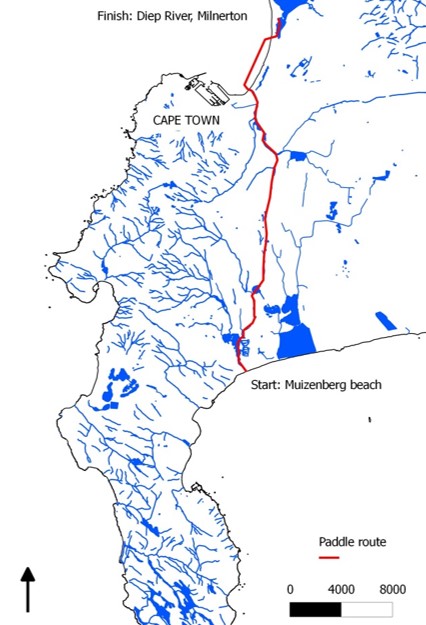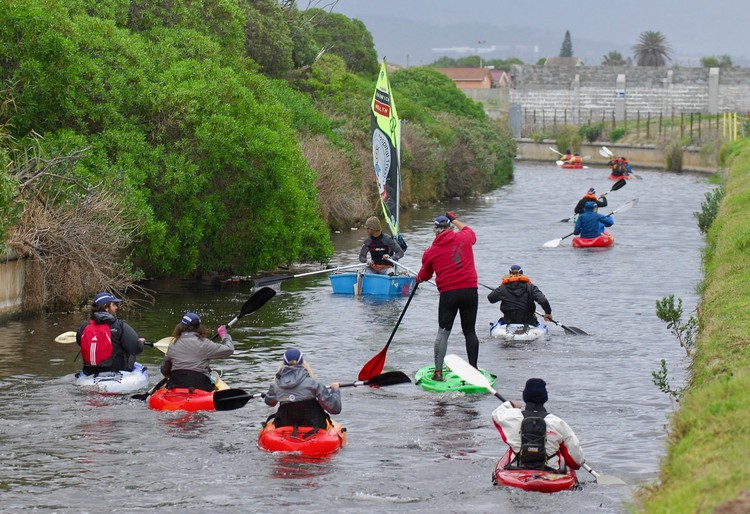Paddling across Cape Town
The health of the city can be seen in the condition of its waterways
On Sunday, more than 80 paddlers joined the Peninsula Paddle to celebrate the recent rainfall and the refreshment it has brought to the dire state of Cape Town’s waterways.
The Peninsula Paddle is a gruelling 15 kilometre journey from Muizenberg to Milnerton, paddling and dragging kayaks through canals, rivers and vleis.
Along the way, the paddlers got a close up view of the city waterways after months of accumulated litter, aquatic weeds and contaminated water that regularly flows into the canals and lakes.
This year, paddlers were joined by the inspiring Greg Bertish, an adventurer and fundraiser for the Red Cross Children’s Hospital. He achieved an extraordinary feat by sailing and paddling through the waterways in his Optimist dinghy. Bertish’s children’s book called The Little Optimist is all about his journey through a life threatening medical condition.
For the fourth successive year, the City of Cape Town’s sports and recreation department brought 30 young paddlers who live in areas along the paddle route such as Steenberg. Every participant first had to prove their ability on the water by attending a series of practice outings held at Zandvlei. The programme is encouraging young people to take an interest in waterways and to enjoy the fun of paddling the river corridors.
The Peninsula Paddle has a crucial message: the health of the city is seen in its waterways. The waterways are blue and green corridors, the veins of the city, connecting well-established suburbs to some of the poorest parts of the city. We all share the waterways. What gets discarded and poured into storm water drains will find its way to the sea. There was plenty of evidence that tonnes of trash, plastics and other materials is being flushed out to sea from the rain last week. The failure to prevent litter from entering the waterways has reached an alarming stage. Once solid waste gets into the water, it is almost impossible to get out.
The City will have to continue funding its extended public works programme to keep cleaning and maintaining the waterways, but the extent of the challenge is overwhelming the City’s resources. In the long term, it is unlikely to be sustainable. The big challenge then is to find new ways of enabling citizens to enjoy and value these waterways – a long term vision of the Peninsula Paddle.

Support independent journalism
Donate using Payfast

Next: Refugees struggle to renew papers at Home Affairs
Previous: Protest law under scrutiny in court
© 2017 GroundUp. 
This article is licensed under a Creative Commons Attribution-NoDerivatives 4.0 International License.
You may republish this article, so long as you credit the authors and GroundUp, and do not change the text. Please include a link back to the original article.

